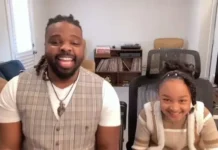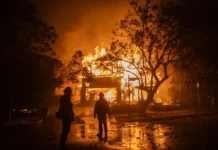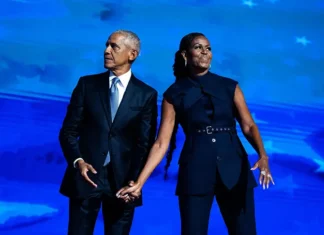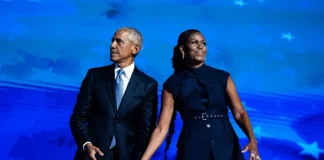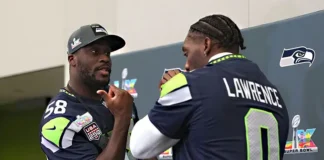
“Black, Out, and Proud” is Word In Black’s series highlighting joyful coming out stories from Black LGBTQ+ folks, their lessons, and how communities can better support them during these pivotal moments.
Some of us find love in the families we’re born into; others find love in communities we build ourselves. For Loveis Wise — a 29-year-old, Black, nonbinary, transmasculine, lesbian/queer multidisciplinary artist living in Los Angeles, CA — both biological and chosen family have played pivotal roles in affirming their identity.
“I think in the last 5 years of realizing my trans-ness and exploring more gender creation, my best friends and chosen family played a huge part in affirming me and helping me to understand more of myself,” Wise tells Word In Black.
They’re not alone. With 39% of queer adults facing rejection from their birth families, chosen families — a community made of non-biological kinship bonds deliberately chosen for the purpose of mutual support and love — play an important role in the lives of Black LGBTQ+ people.
In high school, Wise experienced that importance after watching their best friend’s biological family reject them when the friend came out. This inspired Wise to share their evolving identity with their own parents, hoping instead for acceptance.
Their experience “was pretty interesting because I initially came out as bisexual to my parents when I was 14 or so” and a high school freshman, Wise says. “I was compelled to after my childhood best friend had also come out and was kicked out of her home by her family. I remember being very thankful because my parents were very accepting.”
That support was a lifeline for Wise’s friend: they “show(ed) up deeply for my friend” and became part of her chosen family. Wise and their family provided her with communal care, check-ins, and mutual aid.
As they matured, Wise learned that coming out was a journey. Many Black LGBTQ+ folks choose to identify in different ways as they grow more in tune with themselves and their beliefs.
With 60% of Americans saying a person’s gender is determined by their sex assigned at birth, and schools and laws nationwide censoring transgender expression, coming out for Black trans folks can be a longer process. Wise says finding their chosen family — composed of trans, queer, and gender-expansive creative folks they’ve met around the world — grounded them in a sense of “emotional safety of recognizing that we can be more than one fixed way of being ourselves.”
“Coming out is important because it gives us a space to share our truths and affirm ourselves,” they say. “I often think about how when I started using different pronouns for myself, my chosen family supported me, and it helped me to feel safe in my body.”
Finding a loving community and embracing their own identity has expanded Wise’s creative endeavors as well.

“As a multidisciplinary artist, my identity often is a throughline in my work, and that confidence I feel in myself provides a safe space for the work I like to explore, that being: queer, gender-expansive, BIPOC narratives that are playful, transformative, and healing,” Wise says.
For other Black LGBTQ+ folks who want to come out, Wise suggests, “Take your time and use discernment in the places where it can feel safe to come out. I do recognize that this is not accessible for everyone but we can always start intimate with friends and loved ones that feel safe.”


